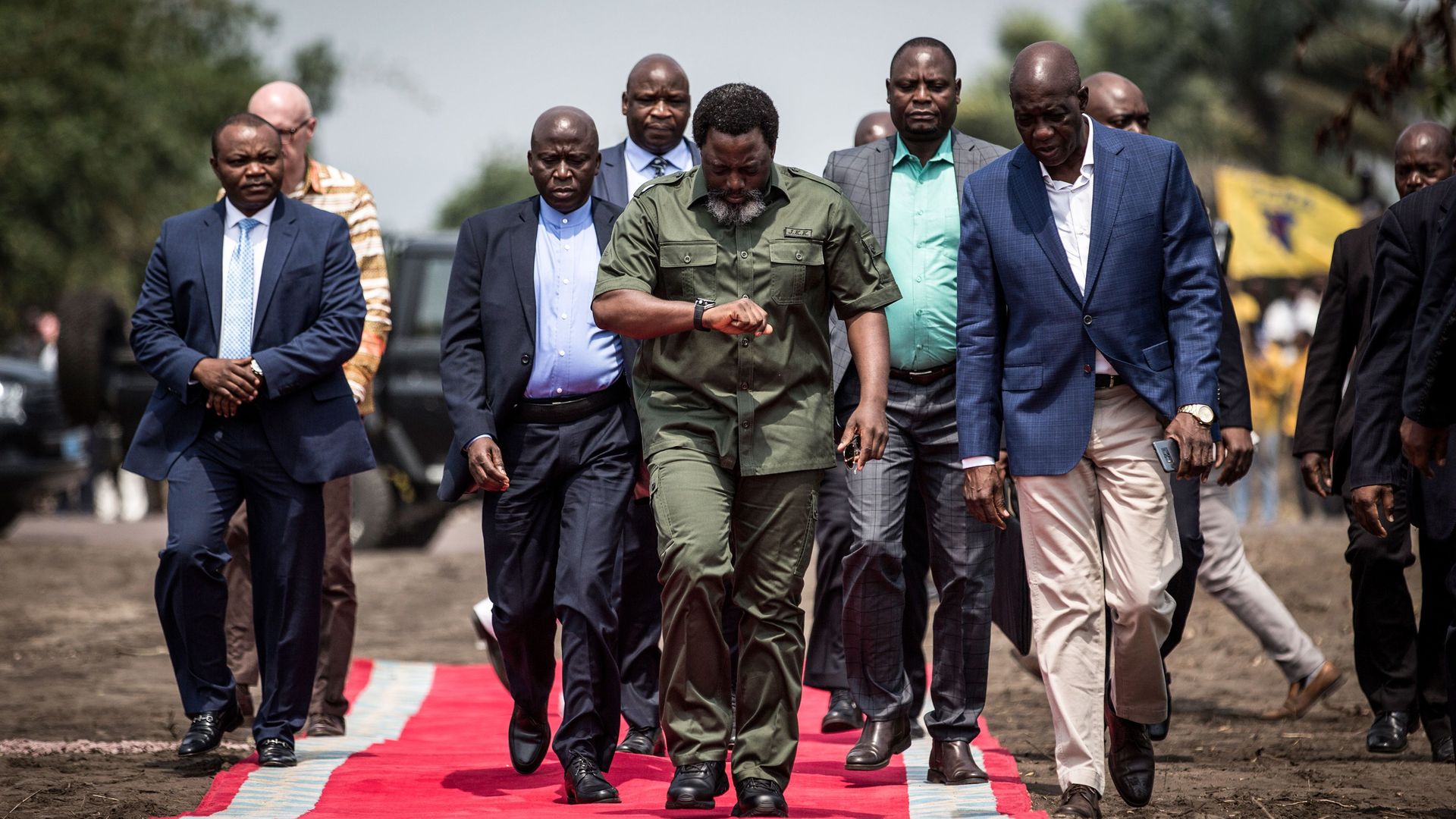Nov 5, 2018 - Health
The dangers of an election in Congo
Add Axios as your preferred source to
see more of our stories on Google.

Kabila's time is running short. Or is it? Photo: John Wessels/AFP/Getty Images
Add Axios as your preferred source to
see more of our stories on Google.

Kabila's time is running short. Or is it? Photo: John Wessels/AFP/Getty Images